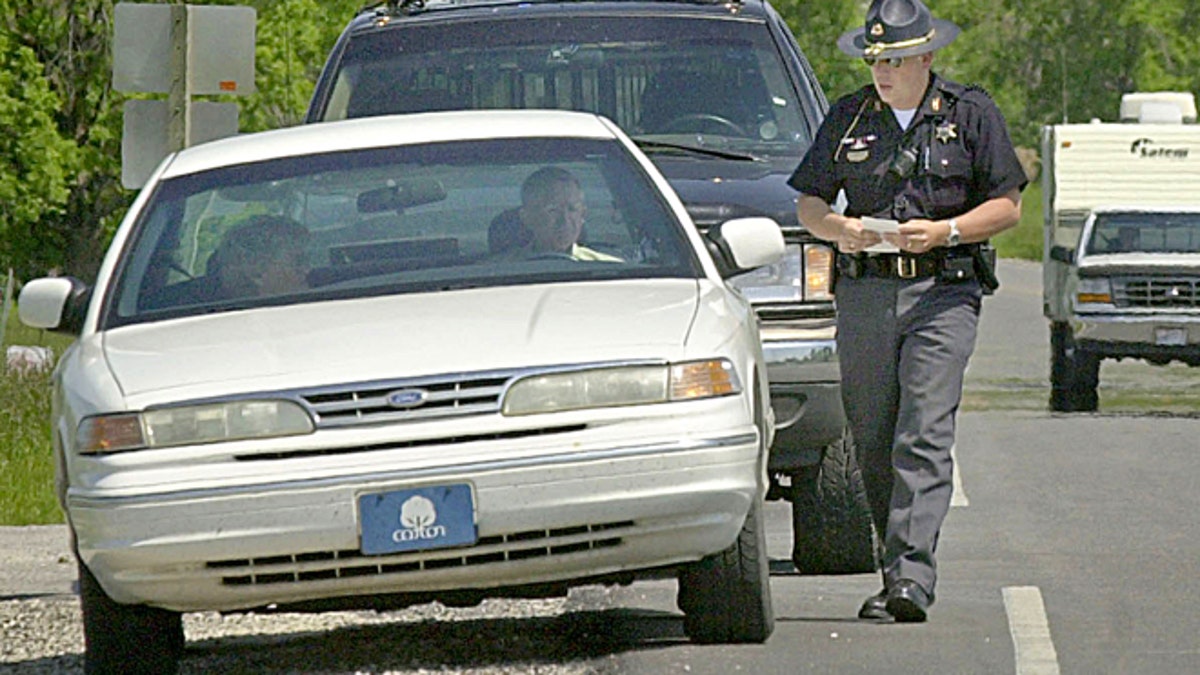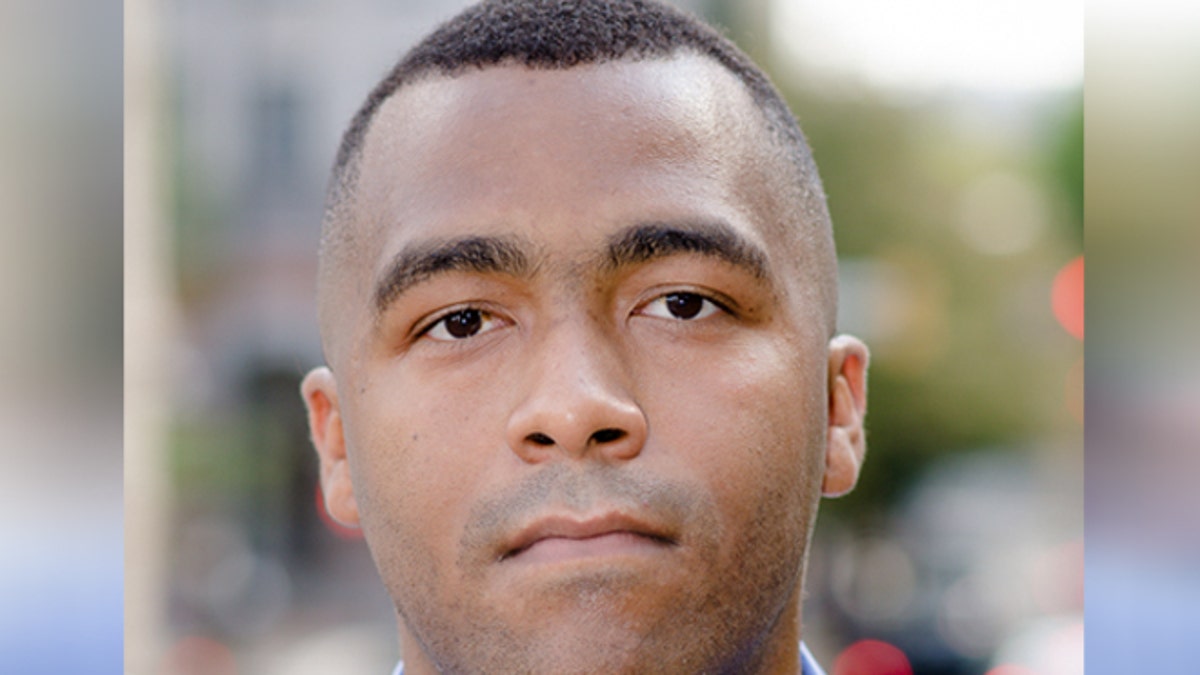
Getting pulled over in Virginia can lead a driver down a hard road. (AP)
Robert Taylor insists he’s a good guy, but says the state of Virginia has treated him like a bad one ever since he got buried under a pile of unpaid traffic tickets, fees and fines.
The 28-year-old Richmond man spends weekends in jail, can't hold a job and does not know how he will ever pay off the nearly $5,000 he owes the state.
“I’m not a criminal in any sense of the word,” Robert Taylor told FoxNews.com.
Without the availability of a payment plan, Taylor had his license suspended, leaving him unable to work. And being unable to work left him unable to make a dent in what he owes the state, he said.
Now, Taylor is part of a class action suit which alleges that drivers have been treated unfairly under the state’s License-for-Payment system. Virginia is one of nine states that automatically suspends a license if they have not received fines of fee payments within 30 days. The state does so without any inquiry into non-payment or consideration for a driver’s financial circumstance.
“I’m not a criminal in any sense of the word and I’ve been sent to jail twice.”
According to the Legal Aid Justice Center, which filed the suit against Virginia’s Department of Motor Vehicles, hundreds of thousands of low-income residents are trapped in a cycle of debt and poverty. Nearly one in six drivers in Virginia has a suspended license for failure to pay court costs and fines.
“It’s a problem for low-income individuals because of the volume and the high amount associated with the fines,” Angela Ciolfi, LAJC lead attorney, told FoxNews.com. “It’s fundamentally unfair to punish people for not being able to pay in addition to being punished for their infractions.
“It’s easy for someone who makes $100 an hour to pay a $100 fine than for someone who makes $7.25 an hour," she added. "Low-income people are continuously punished under this system, while the wealthier people can atone by simply signing a check.”
Ciolfi and the Legal Aid Justice Center say most license suspensions in the state are for failure to pay and not for being a danger to fellow motorists. Roughly 65 percent of all suspension and revocation orders are over unpaid court costs and fines.
Taylor was pulled over in April of 2014 for running a red light. It was discovered during that traffic stop that he had been driving on a suspended license for having improper license plates. Taylor, who blamed the license plate snafu on an auction house from which he bought the car, got his license reinstated a month later.
But the fine and ensuing fees, together with a lack of opportunity to make payments, quickly buried Taylor.

Taylor is part of a class action lawsuit against Virginia for its zero tolerance policy on collecting court fines and fees.
“I wanted to give them every cent I owe," Taylor said. “But they offered no way to make payments over time.”
The Center’s complaint filed in the state’s Western district seeks a reversal of the charges against their plaintiffs because they claim the policy is among other things, a violation of the Equal Protection Clause. They cite a U.S. Supreme Court ruling that punishing a person solely for poverty, rather than willful refusal to pay or to make bona fide efforts to, violates the Fifth and Fourteenth amendments.
When reached for comment, officials for the Office of Virginia Attorney General declined to comment due to the Commonwealth having not yet filing a response to the suit.
“We are closely reviewing the complaint with our client and will file a timely answer,” the official said in a written statement to FoxNews.com.
The Legal Aid Justice Center has said that their research has found that a driver’s license is absolutely vital for a person’s ability to maintain a job, pursue educational opportunities and provide for family. They also say that nearly 75 percent of these suspended drivers are left with no choice but to continue driving.
Taylor has 11 more weekends to serve in jail, but he'll still owe the state.
“I don’t believe anyone deserves to go through this,” Taylor said.

